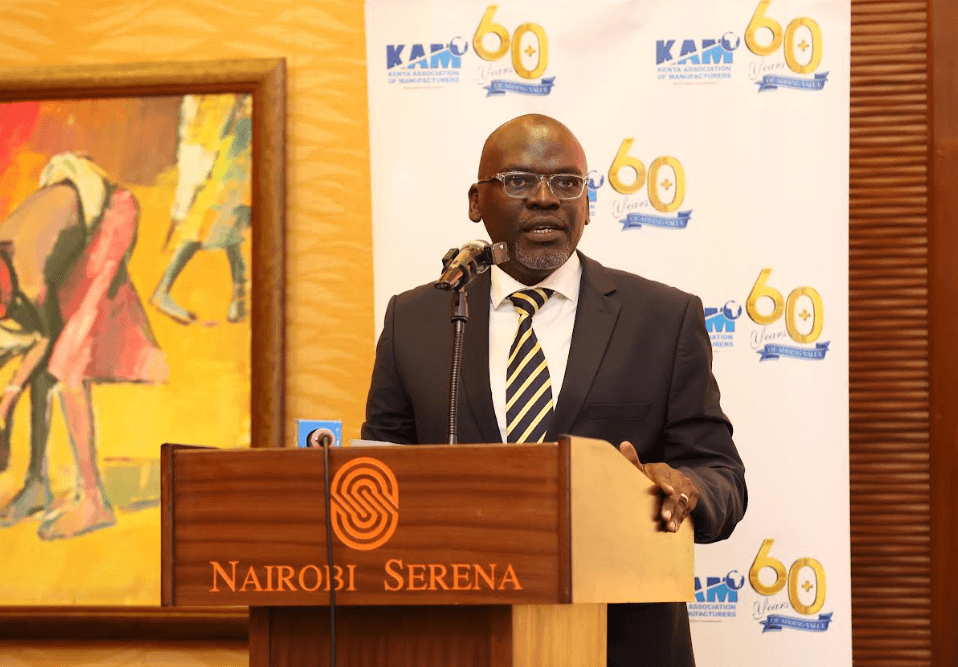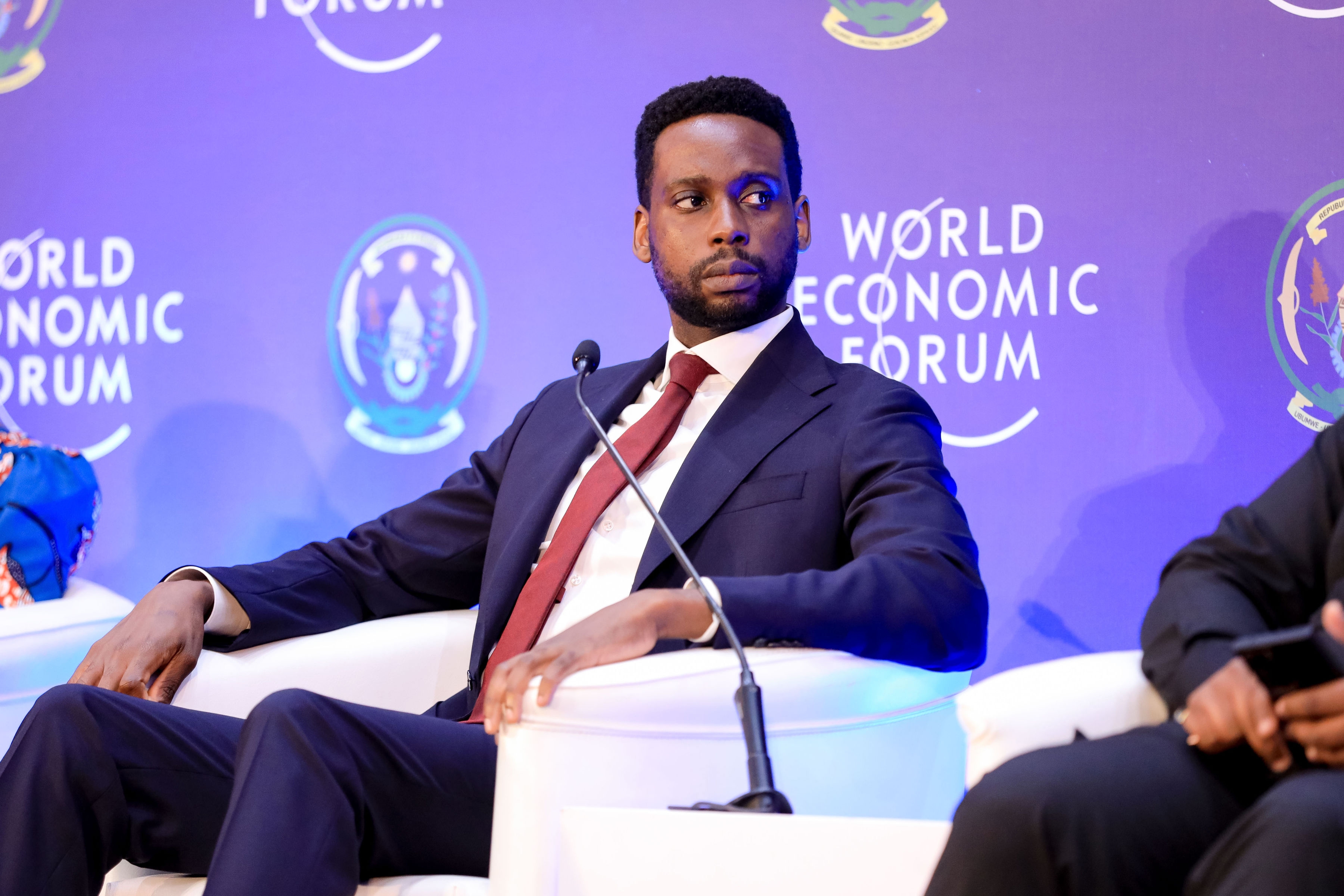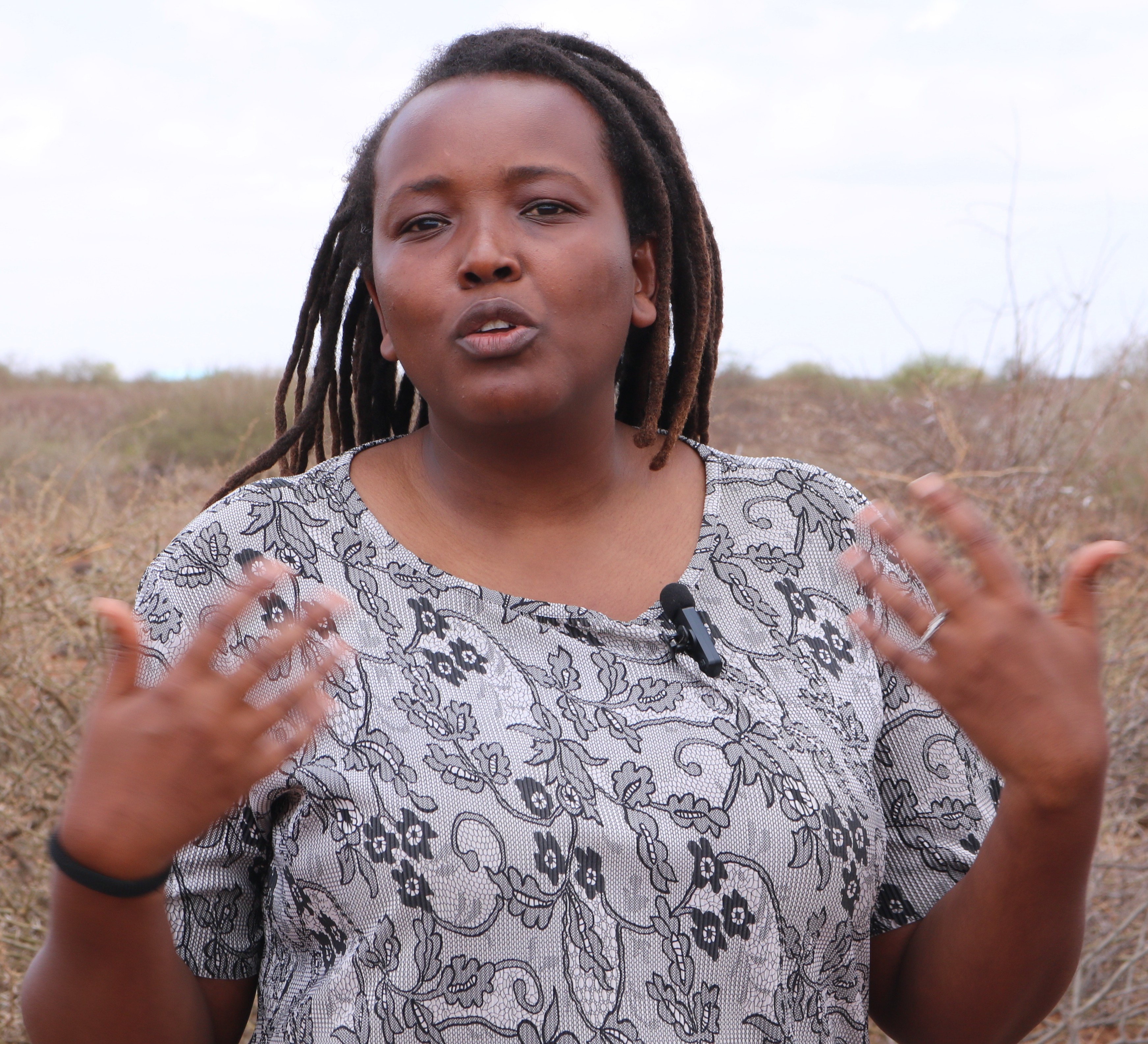 Dr Betty Murimi explains how an AI-powered weather station
operates in Turbi./STEPHEN ASTARIKO
Dr Betty Murimi explains how an AI-powered weather station
operates in Turbi./STEPHEN ASTARIKO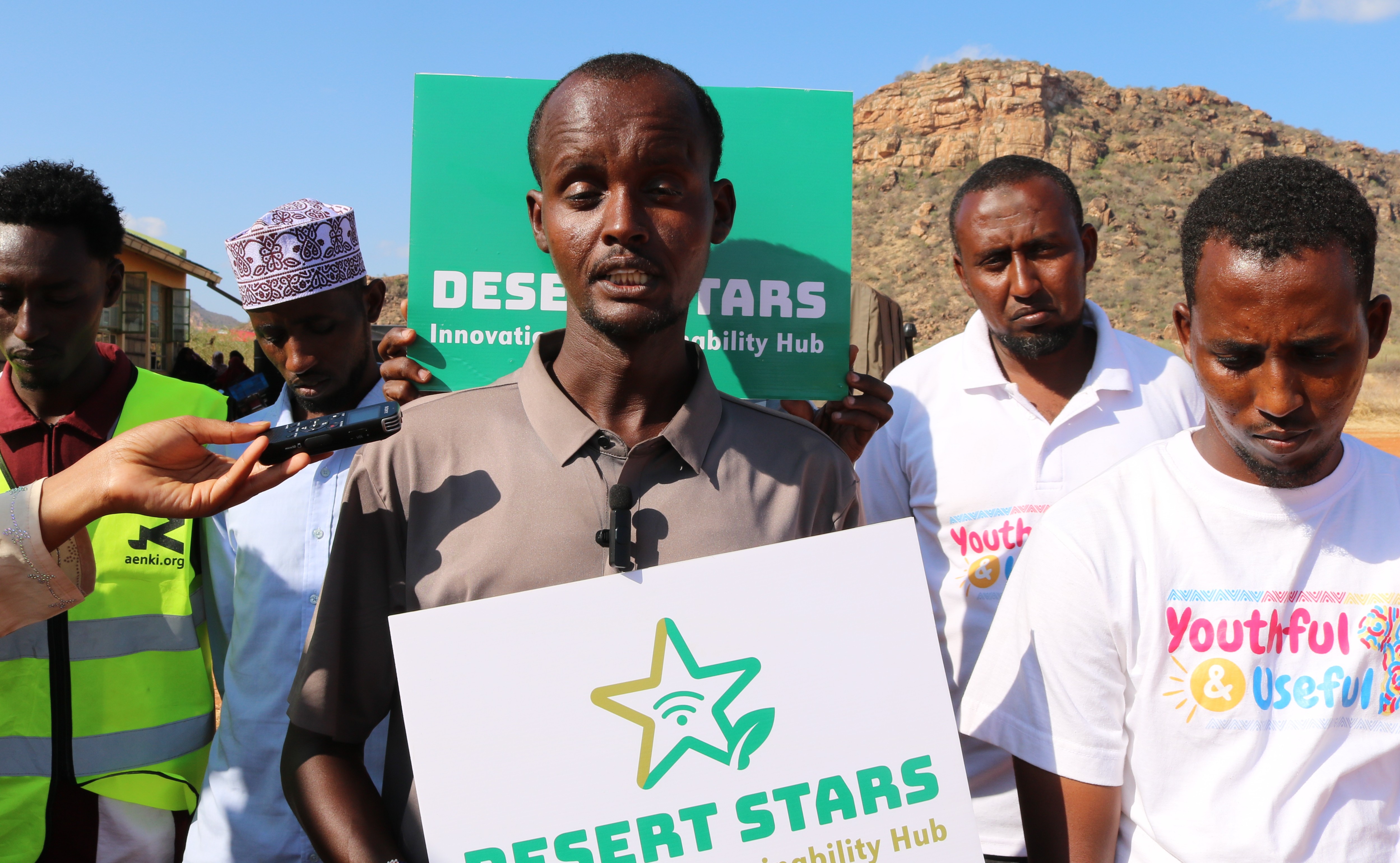
Gabriel Galgallo (centre) flanked by his fellow Juhudi Mashinani tech graduates during an interview at Nomadic Girls Secondary School where Desert Stars ICT hub was launched./STEPHEN ASTARIKO
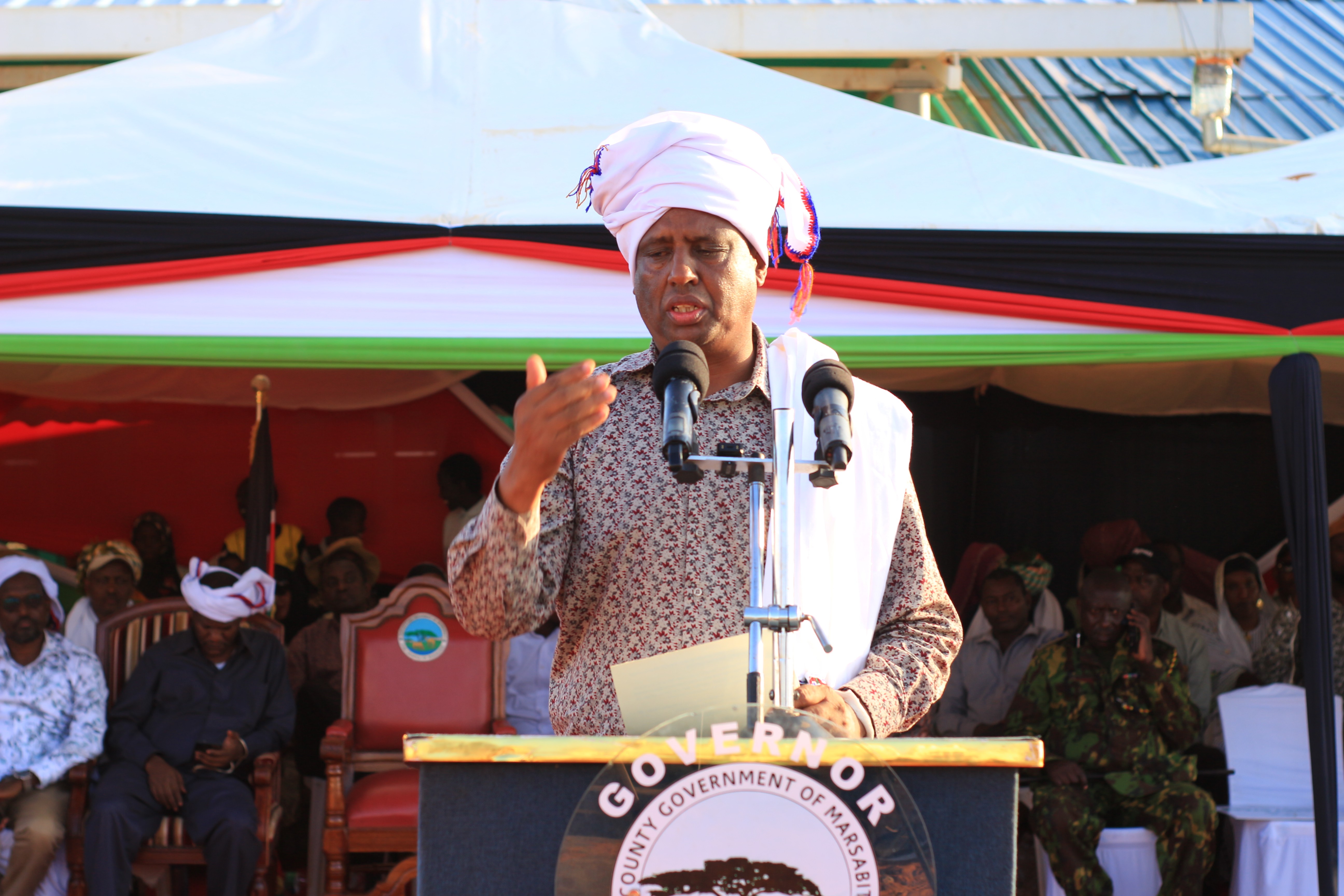 Marsabit Governor Mohamud Ali during the launch of
Desert Stars ICT Hub in Turbi./STEPHEN ASTARIKO
Marsabit Governor Mohamud Ali during the launch of
Desert Stars ICT Hub in Turbi./STEPHEN ASTARIKOAs Marsabit Governor Mohamud Ali cut the ribbon to unveil the Desert Stars Innovation and Sustainability Hub, applause rippled through the crowd of elders, youth, and international partners.
It wasn’t
just a launch; it was a declaration that even in the drylands of northern
Kenya, a digital dawn was breaking.
The Desert
Stars Hub, a first-of-its-kind in the region, located in Turbi along the
highway linking Marsabit to Ethiopia, is a dual engine for transformation.
It is one part digital innovation centre, one part climate-smart agriculture
incubator.
It aims to
fuse technology and tradition, preparing Marsabit’s youth for a future where
connectivity, data and resilience define survival.
In
Marsabit, where some villages still record internet penetration below one per cent, the gap between the drylands reality and the digital economy has long
been a canyon.
The hub
seeks to bridge it, not by importing solutions, but by nurturing local
creators.
Inside its
solar-powered labs, youth are learning coding, data analysis and app
development, crafting tools that solve real problems.
They solve
such problems through tracking water points, monitoring livestock health and
linking farmers to markets.
The hub’s
second arm, the Climate-Smart Agriculture Incubator, is equally groundbreaking.
When Dr Betty Murimi of Strathmore University installed an AI-driven weather
station at the hub, residents were skeptical.
“We’re not
replacing indigenous wisdom. We’re amplifying it with tools that make it
visible, measurable and actionable,” she said.
International
partners, from the University of Negev’s Centre for Sustainability to local
innovators like Wireless Planet’s Leonard Mabele, see the project as a
continental model for digital inclusion.
“Technology
is not an end, it’s an anchor. If we don’t invest in knowledge-driven
innovations, we’ll keep importing solutions that don’t fit our realities,”
Mabele said.
Gabriel
Galgallo, one of the cohorts from Juhudi Mashinani tech training in the region
and his peers explained how they were once skeptical of digital promises but
are now learning how to compete with their global counterparts for the few
available opportunities.
His group
at the Desert ICT Sustainability Hub is developing a water-point mapping app
informed by satellite data and elders’ oral records.
“We don’t
have to choose between the old and the new. We can make them speak to each
other,” Galgallo said, smiling.
Elders, who
once feared technology as “ghost light”, now see it as a vessel for their
heritage, a way to preserve knowledge for future generations.
“May it
shine so brightly. That no child in Marsabit ever feels left in the dark
again,” the governor declared.
He pledged
that county departments would be the hub’s first customers, integrating
homegrown solutions into e-governance, agriculture and resource management.
“This is
how we turn inclusion from promise into practice. When more people step through
that doorway, the gap between our rural reality and global opportunity narrows," the governor said.
The
system, powered by a LoRaWAN network instead of SIM cards, sends localised
weather and drought alerts by SMS, making it accessible even to those without
smartphones.
For MP
Wario Guyo, the project’s political champion, the hub is more than
infrastructure; it’s a covenant.
“Our people have no jobs; livestock alone won’t sustain us. Today, Desert Stars ensures our young people catch up with the world. Marsabit must change. This is the way,” he said.







